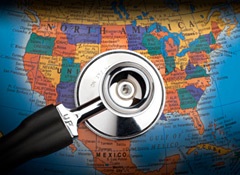
From time to time I hear from readers who are convinced the Affordable Care Act will ruin us all financially. Not happening so far. Instead, it has already saved consumers billions.
Exhibit A: In 2012, the law directly saved consumers $3.4 billion on their insurance premiums, and will require insurance companies to rebate another $500 million in premium overcharges this summer. This is all thanks to a part of the law that requires insurance companies to spend at least 80 cents of every dollar of premium they collect on health care for their customers. If they spend less than that, they have to refund the difference.
The average rebate per family ranges from a low of $43 in South Carolina to $512 in Washington. It can come in several forms: a check in the mail, a reimbursement to the account you used to buy the insurance, or a reduction in your next year's premium. If the rebate is for a health plan that your employer purchased, your employer must use the rebate for your benefit. If you have a rebate coming to you, you'll find out by Aug. 1.
For more information, see our Health Insurance Buying Guide as well as rankings of health insurance plans.
Got a question for me? Ask it here. Please include the state you live in.
Last year several people wrote in wondering why they didn't get a rebate for a plan from a specific insurance company when their friend from another state got one from the same company. The answer is that the rebates are calculated state-by-state. An insurer might have hit the spending mark in one state and missed it in another.
This year, consumers are getting less than half as much as the $1.1 billion in rebates that were handed out last year, the first year the program was in effect. (The rebates are for a calendar year and are announced and delivered the following summer.) That's actually good news: this year, insurers wised up and didn't overcharge for premiums in the first place. That's where the $3.4 billion figure comes from. It's what consumers would have paid extra if their insurance companies had overcharged as much in 2012 as they did the year before.
"There's still room for improvement," says Mathew Hutson, who works on health reform withConsumer Reports' advocacy arm, Consumers Union. "We should be aiming at insurers not owing any rebates and providing good value in the first place, not overcharging us and then giving money back at the end of the year."





